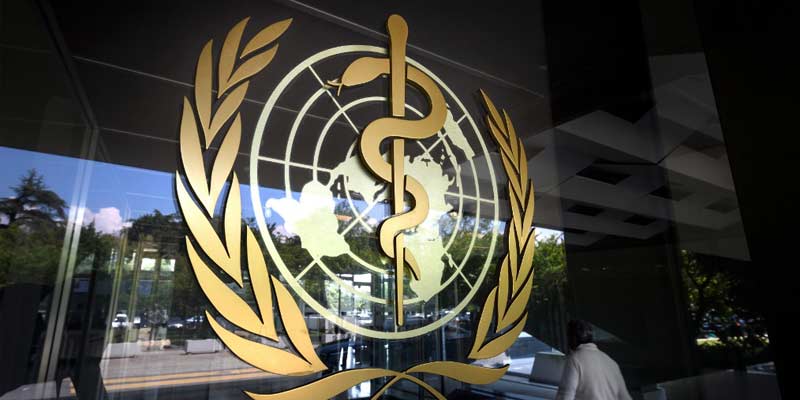- World
- Apr 07
WHO celebrates World Health Day
The World Health Organisation celebrates World Health Day on April 7. From its inception at the First Health Assembly in 1948 and since taking effect in 1950, the celebration has aimed to create awareness of a specific health theme to highlight a priority area of concern for the WHO.
It also commemorates the day the WHO Constitution entered into force on April 7, 1948.
Over the years, this has brought to light important health issues such as mental health, maternal and child care, and climate change. The celebration is marked by activities which extend beyond the day itself and serves as an opportunity to focus worldwide attention on these important aspects of global health.
This year’s theme
This year’s theme is ‘Building a Fairer, Healthier World For Everyone’.
In recent years, countries in the Western Pacific have experienced rapid economic growth, migration and urbanisation. This created opportunities for better lives for many, but left others behind. The COVID-19 pandemic has undercut recent health gains, pushed more people into poverty and food insecurity, and amplified gender, social and health inequities.
This World Health Day calls for action to eliminate health inequities, as part of a year-long global campaign to bring people together to build a fairer, healthier world. The campaign highlights WHO’s constitutional principle that “the enjoyment of the highest attainable standard of health is one of the fundamental rights of every human being without distinction of race, religion, political belief, economic or social condition.”
The world is still an unequal one. The places where we live, work and play may make it harder for some to reach their full health potential, while others thrive. Health inequities are not only unjust and unfair, but they also threaten the advances made to date, and have the potential to widen rather than narrow equity gaps.
However, health inequities are preventable with strategies that place greater attention to improving health equity, especially for the most vulnerable and marginalised groups.
COVID-19 has hit all countries hard, but its impact has been harshest on those communities which were already vulnerable, who are more exposed to the disease, less likely to have access to quality health care services and more likely to experience adverse consequences as a result of measures implemented to contain the pandemic.
WHO calls on leaders to ensure that communities are at the forefront in decision-making processes as we move forward to a new future, and that everyone has living and working conditions that are conducive to good health.
At the same time, it urges leaders to monitor health inequities, and to ensure that all people are able to access quality health services depending on their needs and values within their communities.
World Health Organisation
When diplomats met to form the United Nations in 1945, one of the matters they discussed was setting up a global health organisation under the auspices of the new United Nations. The Constitution of the World Health Organisation was signed on July 22, 1946 at the International Health Conference (New York, 19 June-22 July 1946) by the representatives of 61 States.
The WHO Constitution entered into force on April 7, 1948.
WHO’s primary role is to direct and coordinate international health within the United Nations system.
Working with 194 Member States, across six regions, and from more than 150 offices, WHO staff are united in a shared commitment to achieve better health for everyone, everywhere.
It strives to combat diseases – communicable diseases like influenza and HIV, and non-communicable diseases like cancer and heart disease.
The World Health Assembly is the decision-making body of WHO. It is attended by delegations from all WHO Member States and focuses on a specific health agenda prepared by the Executive Board. The main functions of the World Health Assembly are to determine the policies of the Organization, appoint the Director-General, supervise financial policies, and review and approve the proposed programme budget. The Health Assembly is held annually in Geneva, Switzerland.
WHO works alongside a host of health and development partners to achieve the health-related targets laid out in the Sustainable Development Goals (SDGs). The SDGs underscore the key role health plays in assuring the world’s future, with SDG3 calling on all stakeholders to “ensure healthy lives and promote wellbeing for all at all ages”. And they align totally with WHO’s goal of ensuring that everyone, everywhere, can realize their right to a healthy life. They also stress the importance of collaboration, between different actors working in different fields, in all countries of the world.
With an eye set firmly on 2030, WHO will build on the lessons learnt over its first 70 years. This experience, plus its networks and partnerships — at global, regional, national and local levels — will be critical to ensuring good health and wellbeing for all.
Manorama Yearbook app is now available on Google Play Store and iOS App Store


